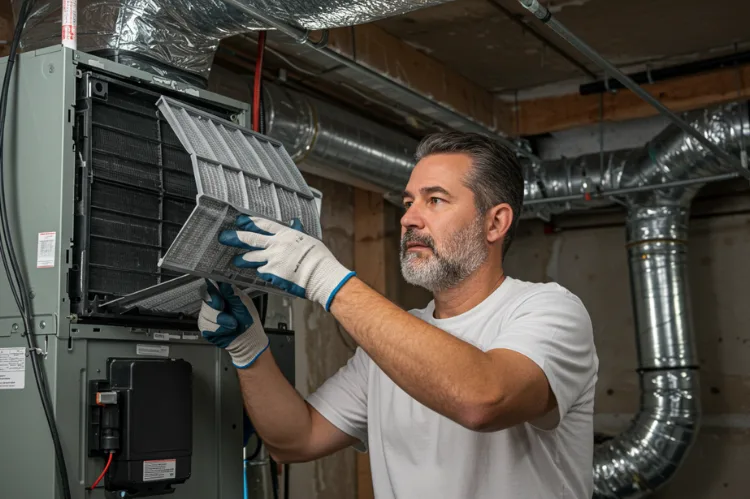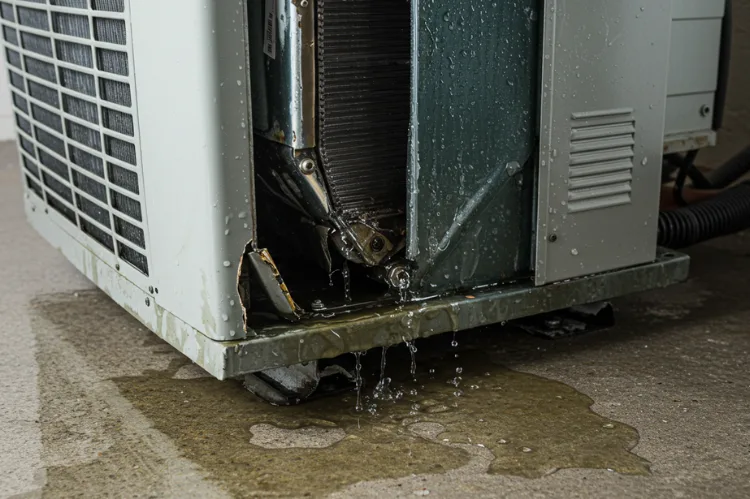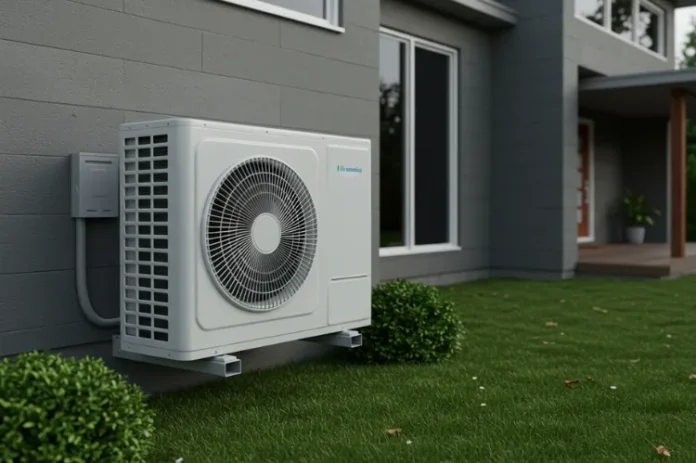Your home’s HVAC system is one of its most significant components, responsible for keeping indoor temperatures comfortable year-round. When it fails, discomfort isn’t the only concern—rising utility bills, compromised air quality, and even safety hazards can quickly follow.
For the resourceful homeowner, the temptation to tackle HVAC issues with a do-it-yourself approach is understandable. Yet, HVAC systems are complex, and while there are minor tasks you can safely handle, knowing when to step back and call in the professionals is critical.
There’s a fine line between proactive maintenance and risking expensive or even dangerous mistakes. Understanding the capabilities and limitations of your DIY skills will help you determine when to grab your toolbox and when to call in certified experts.
What You Can Safely Handle Yourself

There are a few simple HVAC maintenance tasks that almost any homeowner can manage without specialized training. Replacing air filters regularly, for example, is a straightforward way to improve system efficiency and indoor air quality. Dirty filters restrict airflow and force the system to work harder, leading to premature wear.
Another safe DIY task is cleaning air vents and registers. Dust and debris can build up over time, reducing airflow and increasing allergen levels inside the home. A vacuum and a damp cloth are often all you need to freshen them up.
You can also check your thermostat settings and replace batteries if necessary. Many comfort issues stem from incorrect thermostat programming or weak batteries, both of which can be resolved in minutes. For homeowners with programmable or smart thermostats, ensuring proper setup can lead to better temperature control and energy savings.
The Risks of DIY HVAC Repairs

While basic maintenance is encouraged, DIY repairs beyond these tasks can lead to more harm than good. HVAC systems are made up of numerous components—electrical wiring, refrigerant lines, compressors, sensors, and intricate ductwork. Tampering with these elements without proper knowledge can both void your warranty and create new, more expensive issues.
Refrigerant handling, for instance, is strictly regulated due to its environmental impact and health risks. It’s illegal to service refrigerant systems without the appropriate EPA certification, and improper handling can lead to dangerous leaks or exposure. Similarly, electrical components pose a shock hazard if mishandled, especially in older systems with aging circuits or wiring.
One of the most common DIY pitfalls is misdiagnosis. HVAC symptoms can be deceptive—what seems like a broken thermostat might actually be a failing blower motor. Attempting to repair the wrong part wastes time and money and may complicate the original issue.
Signs You Should Call a Professional

Recognizing the warning signs that require professional intervention can save you both time and costly repairs down the line. If your HVAC system is making unusual noises, such as grinding, banging, or high-pitched squealing, this often indicates mechanical issues that need expert attention.
Other red flags include inconsistent temperatures between rooms, weak airflow, frequent cycling on and off, or persistent humidity problems. These symptoms often point to deeper issues within the system, such as duct leaks, faulty compressors, or malfunctioning sensors.
If your unit fails to turn on entirely, this typically involves electrical or control board issues, both of which should be addressed by a trained technician. The same goes for visible signs of damage, water pooling near your indoor unit, or error codes on digital thermostats. These situations require diagnostic tools and specialized training that go beyond the average homeowner’s reach.
The Benefits of Professional HVAC Service

Calling in a professional for HVAC repair ensures accurate diagnosis and long-lasting solutions. Certified technicians have access to specialized equipment and are trained to identify issues quickly and safely.
They can also assess the overall health of your system, suggesting preventative maintenance or upgrades that can save you money in the long run. Working with a trusted provider like Pure Air Cooling & Heating offers peace of mind and reliability.
From system inspections and routine servicing to complex repairs and full replacements, experienced professionals bring both technical expertise and industry-standard safety protocols to every job. Their insight helps extend the lifespan of your equipment, improve indoor air quality, and restore comfort efficiently.
In addition, many HVAC service providers offer warranties and service guarantees, ensuring that if anything goes wrong after the repair, you’re covered. That level of assurance simply isn’t available with a DIY approach.
Balancing Cost Savings and Risk
One of the biggest reasons homeowners attempt DIY HVAC fixes is cost. Professional service calls can feel expensive, particularly when the problem seems minor. However, it’s important to weigh the potential savings against the risks. A poorly executed repair might damage other system components, resulting in higher costs later on.
Plus, investing in a professional fix often leads to better energy efficiency and lower monthly utility bills. What may seem like a high initial cost often results in long-term savings through improved system performance and fewer repeat issues.
If budget is a concern, many HVAC companies offer seasonal specials, service contracts, or financing options that can ease the financial burden while still delivering expert care.
When it comes to HVAC repairs, knowing your limits is key. While changing filters and cleaning vents are great DIY habits, most issues involving mechanical components, refrigerants, or electrical systems should be left to the pros.
Relying on certified technicians ensures your system stays safe, efficient, and dependable throughout every season. By recognizing when to step back and let the experts take over, you protect your investment and also your peace of mind.
Read Next: How to Handle an HVAC Breakdown Without Losing Your Cool

